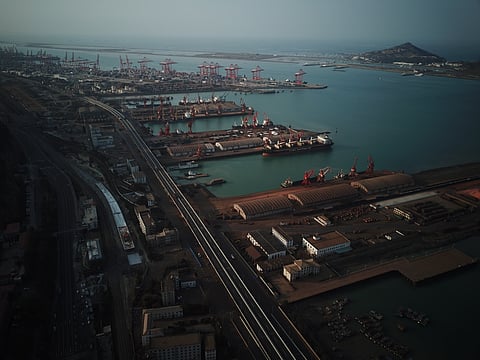

China has imposed stricter export controls on rare earth elements and related technologies, intensifying trade frictions with the United States as leaders prepare for a key summit.
The Ministry of Commerce announced the measures on Thursday, formalizing restrictions on exporting products containing even trace amounts of rare earths.
Foreign companies must now obtain government approval and detail the intended use of these materials.
The rules extend to lithium batteries and certain graphite forms, both vital for global technology supply chains.
Beijing processes approximately 90 percent of the world's rare earths, using them in products from solar panels to smartphones.
These elements form a group of 17 chemically similar metals, essential for high-tech manufacturing.
They appear in neodymium for magnets in electric vehicle motors and jet engines, among other applications.
The controls target overseas defense manufacturers and semiconductor firms reliant on Chinese supplies.
Licenses are unlikely for arms producers or certain chip industry players.
This follows April additions to the export control list, which triggered global shortages before temporary deals alleviated them.
The United States maintains significant mining but lacks sufficient processing capabilities, heightening vulnerability.
The timing aligns with an anticipated meeting between President Donald Trump and President Xi Jinping in South Korea later this month.
Analysts view the restrictions as Beijing's counter to U.S. bans on chip-making equipment exports to China.
Those American measures aim to curb China's advances in powerful chips for artificial intelligence with military uses.
China's approach mirrors this by addressing U.S. weaknesses in electronics and weapons production.
The new list includes five additional rare earths: holmium, erbium, thulium, europium, and ytterbium.
Dozens of refining technologies, mining equipment, and processes like smelting and separation are now restricted.
Foreign producers using Chinese materials or equipment in rare earth products require export licenses, even without direct Chinese involvement.
Prohibited activities encompass unauthorized overseas cooperation and exports of production equipment assembly or maintenance.
Chinese firms face bans on foreign collaborations without permission.
The regulations aim to safeguard national security.
Enforcement details remain unclear.
Several elements and equipment controls activate on November 8, preceding a 90-day U.S. trade truce expiration.
Rules for foreign companies using Chinese inputs take effect December 1.
Shares in major Chinese rare earth firms rose sharply Thursday, with China Northern Rare Earth Group up 10 percent.
The International Energy Agency notes China holds 61 percent of production and 92 percent of processing.
These steps bolster Beijing's negotiating position.
Trade expert Tim Zhang described them as enhancing leverage ahead of the summit.